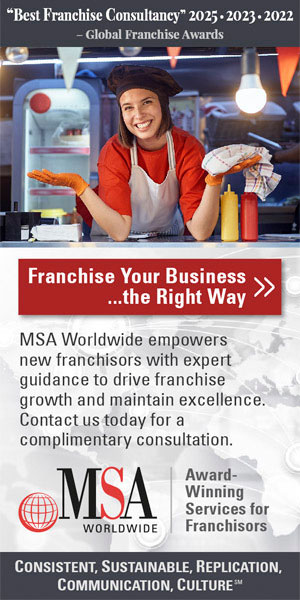Americans Failing Taxes 101
H&R Block Survey Shows Most Can't Answer Basic Tax Questions
Kansas City, MO, (MARKET WIRE via COMTEX News Network) -- Americans may like to talk about taxes but according to an annual survey by The Tax Institute at H&R Block (NYSE: HRB), most can't answer even the most basic tax questions correctly.
"Given the current economic climate -- and the need for taxpayers to claim every tax credit and deduction they're due -- the survey results are alarming," said Amy McAnarney, executive director of The Tax Institute at H&R Block. "The bottom line: Americans are failing Taxes 101."
The Tax Institute survey assessed the knowledge and opinions of a nationally representative sample of more than 1,000 U.S. adults, and found the majority doesn't know a credit from a deduction and, even more surprising, they aren't completely sure how much they even pay in taxes.
"Americans will spend more this year on taxes than food, housing and clothing combined," said McAnarney. "While they may clip coupons or negotiate their mortgage, most don't pay attention to their largest bill -- their taxes. This could be especially troublesome for people who prepare their taxes themselves or don't check their tax professional's credentials."
Among the survey's findings:
- 70 percent of taxpayers surveyed by The Tax Institute at H&R Block said they weren't aware of recent legislative changes that could affect their return next year.
- "There are changes that affect parents, first-time homebuyers, long-time homeowners, military personnel, retirees, people impacted by the Alternative Minimum Tax and more," said McAnarney. "Every one of those changes could mean money in taxpayers' pockets."
- Most Americans don't know a tax credit from a deduction -- and that could be costing them big bucks.
- Nearly 60 percent of those surveyed didn't know which trims more off the bottom line. The answer? A tax credit, which lowers a tax bill dollar-for-dollar, while a tax deduction lowers taxable income.
- "This is not the time for taxpayers to guess on their own or see a tax professional who isn't a tax expert," said McAnarney. "More than ever, taxpayers need advice that translates into the biggest refund they're allowed by law."
- Talking about taxes is one thing, but knowing how much that bill costs is an entirely different discussion. The survey showed that 78 percent weren't totally confident they even know what tax bracket they're in.
- "Knowing your tax bracket is the first step to taking advantage of opportunities to lower your tax liability," said McAnarney. "There are lots of things people can do to lower their tax bill throughout the year: invest in a 529, a 401 (k) or an IRA, contribute to a health savings account, knowing when to dispose of capital assets -- the list goes on."
- 84 percent of those surveyed did not know they could go back three years to amend a return. For taxpayers who may have missed a credit or deduction, that could spell money in the bank. "There are do-overs in taxes, but not enough people take advantage of that," said McAnarney. "A professional can look at an old return and see if there is additional money left unclaimed." At H&R Block, 87 percent of previous years' amended returns net taxpayers an average refund of $1,300.
- Americans fail to recognize that up-to-date training and education are key when selecting a tax professional. According to the survey, 76 percent of taxpayers fail to list "knowledge of current tax laws" as an important trait when picking a tax professional. One of the top traits survey participants chose? Location.
- "Convenience is always important but knowledge means money," said McAnarney. "The U.S. tax code is always changing, which is why taxpayers need to make sure their professional receives continuous education on key changes which then translates into more value for the taxpayer."
- And despite the fact that the majority of those surveyed did not know their tax bracket, how much they paid in taxes or the difference between a credit and a deduction -- they still aren't enamored with the U.S. tax system. A whopping 92 percent of those taxpayers surveyed could not describe the U.S. tax system as "very fair."
- Middle-aged Americans were less likely to see the U.S. taxation system as very fair or somewhat fair compared to those taxpayers both younger and older than them. Only 32 percent of those between 35 and 54 said the tax system was very or somewhat fair, compared with 47 percent of taxpayers between 18 and 34 and those 55 and older.
Whether taxpayers prepare their own returns or rely on professional help, paying attention to their largest expense of the year is critical -- especially in today's economy.
"Americans should treat their tax bill like their bill of health," said McAnarney. "At times it may be appropriate to evaluate your own condition, but on balance it is extremely important to lean on a knowledgeable expert to ensure you are on the right track. Now, more than ever, it is critical for taxpayers to get the advice they need to ensure the refund they deserve."
The Tax Institute is a national leader in providing unbiased research, analysis and interpretation of federal and state tax laws. Staffed by Enrolled Agents, CPAs, and Attorneys, The Tax Institute provides industry expertise for matters related to taxes and the professional tax preparation industry.
About H&R Block
H&R Block Inc. (NYSE: HRB) is the world's preeminent tax services provider, having served more than 400 million clients since 1955 and generating annual revenues of $4.1 billion in fiscal year 2008. H&R Block provides income tax return preparation and related services and products via a nationwide network of approximately 13,000 company-owned and franchised offices and through Tax Cut(R) online and software solutions. The company also provides business services through RSM McLaren.
SOURCE: H & R Block
###
| ADVERTISE | SPONSORED CONTENT |
Franchise News
By Type
- Expansions & Growth
- Financial & Earnings Claims
- Mergers & Acquisitions
- Personnel Changes
- Conferences & Events
- Product Announcements
- Media Coverage
- Strategic Alliances
By Sector
| ADVERTISE | SPONSORED CONTENT |



 The franchise opportunities listed above are not related to or endorsed by Franchising.com or Franchise Update Media Group. We are not engaged in, supporting, or endorsing any specific franchise, business opportunity, company or individual. No statement in this site is to be construed as a recommendation. We encourage prospective franchise buyers to perform extensive due diligence when considering a franchise opportunity.
The franchise opportunities listed above are not related to or endorsed by Franchising.com or Franchise Update Media Group. We are not engaged in, supporting, or endorsing any specific franchise, business opportunity, company or individual. No statement in this site is to be construed as a recommendation. We encourage prospective franchise buyers to perform extensive due diligence when considering a franchise opportunity.